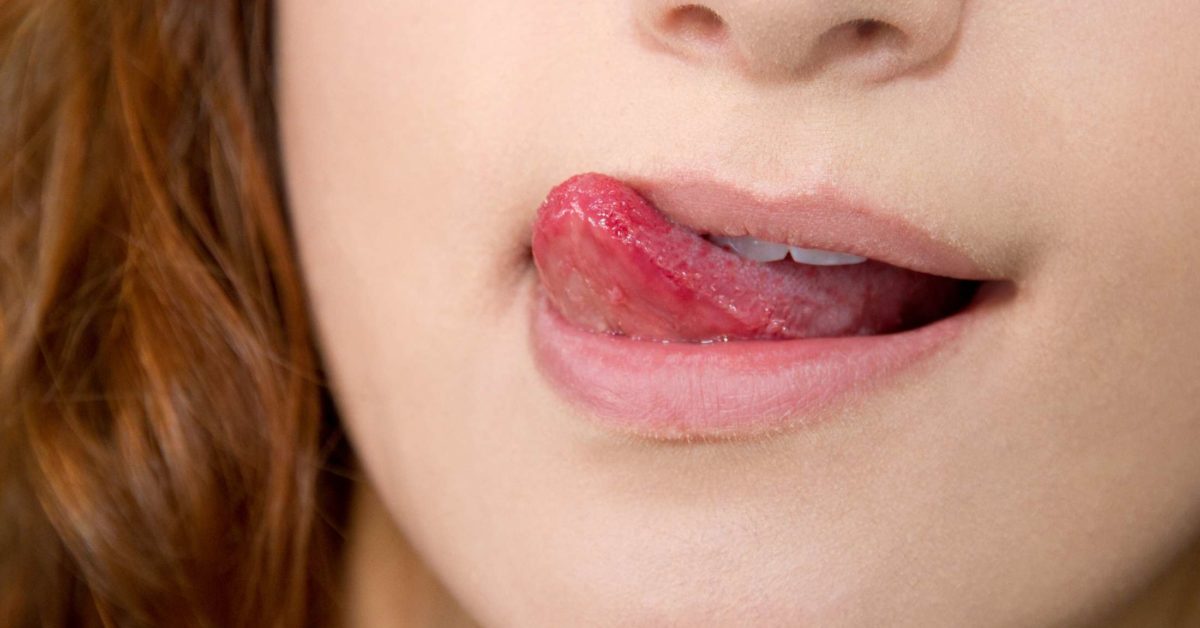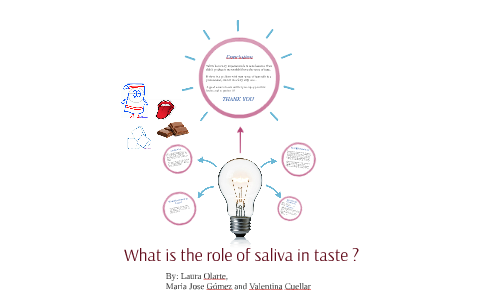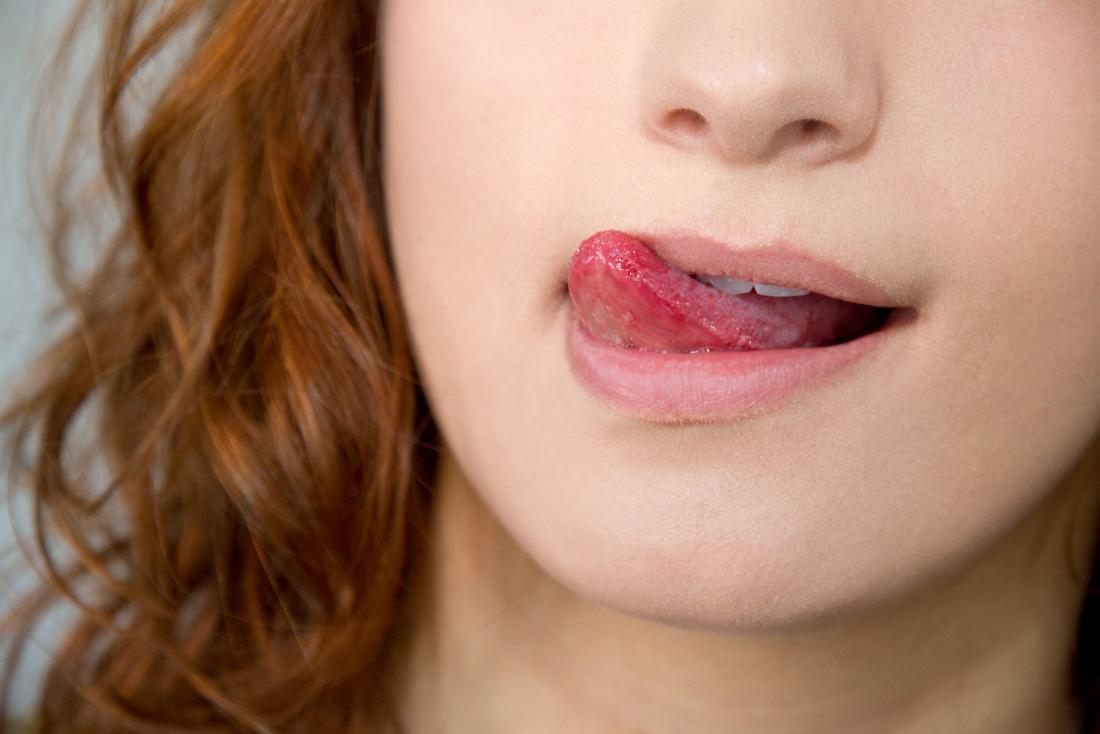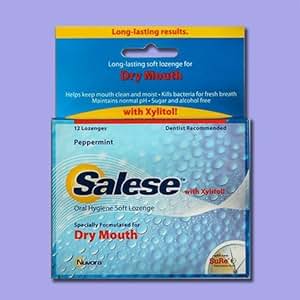Hoarseness in the morning, a sour taste, or bad breath may be clues of GERD. For example, patients with severe kidney disease will have excess production of ammonia in the saliva, causing a metallic taste in the mouth. This can cause a variety of oral symptoms, according to a review in the Saudi Dental Journal.  Some people suffer from decreased saliva production which creates wrong perceptions of taste. Chronic asthma, cough, wheezing, and noncardiac chest pain, (it may feel like angina) may be due to GERD. You may experience a salty taste when first waking up, eating, and drinking, or when having not consumed anything for several hours.
Some people suffer from decreased saliva production which creates wrong perceptions of taste. Chronic asthma, cough, wheezing, and noncardiac chest pain, (it may feel like angina) may be due to GERD. You may experience a salty taste when first waking up, eating, and drinking, or when having not consumed anything for several hours.  A salty taste that lingers can be a type of taste disorder called dysgeusia. Stuffy Nose A stuffy nose due to allergies or a cold can cause thick saliva. Salivary glands are located in the mouth. 1 A salty taste can have several causes, from dry mouth to infection to a head injury. Having halitosis can have a major impact on a person. If your saliva is feeling sticky, viscous, or thick, it might be due to one of these four conditions. Healthy saliva flow can wash food away from the teeth and gums, breaks down food for easy swallowing, enhances your ability to taste, and prevents cavities and other infections. Mask the bitter taste of food containing urea: Add wine or beer to soups and sauces. Respiratory infections. If your saliva is feeling sticky, viscous, or thick, it might be due to one of these four conditions. Sublingual glands are under the tongue.
A salty taste that lingers can be a type of taste disorder called dysgeusia. Stuffy Nose A stuffy nose due to allergies or a cold can cause thick saliva. Salivary glands are located in the mouth. 1 A salty taste can have several causes, from dry mouth to infection to a head injury. Having halitosis can have a major impact on a person. If your saliva is feeling sticky, viscous, or thick, it might be due to one of these four conditions. Healthy saliva flow can wash food away from the teeth and gums, breaks down food for easy swallowing, enhances your ability to taste, and prevents cavities and other infections. Mask the bitter taste of food containing urea: Add wine or beer to soups and sauces. Respiratory infections. If your saliva is feeling sticky, viscous, or thick, it might be due to one of these four conditions. Sublingual glands are under the tongue.
A bitter taste can also be related to chronic dental problems, such as caries or gingivitis. Read More. Indu Lal answered. Acid Reflux or GERD. Also called Xerostomia or dry mouth syndrome Xerostomia can be caused by dehydration, which makes dehydration also a cause for sour taste in the mouth. Nutrtional deficienc: Some times lack of certain minerals / vitamin can give peculiar tastes in mouth. Dry mouth, or xerostomia, happens when there is not enough saliva or saliva becomes very thick. Other symptoms of dry mouth are thick stringy saliva, persistent sore throat, or a grooved tongue. We Recommend Health Waking Up With Dry Mouth? If youre otherwise healthy, the cause for that metallic tang typically is benign.
 Respiratory infections. WebIn the meantime, practice good oral hygiene. However, it could also point to an underlying condition. Saliva is derived from blood, which helps maintain the health of hard and soft tissues in your mouth. If your job puts you in the path of metal fumes like zinc oxide, it might mess with your sense of taste. These chemicals are released into the saliva, causing a metallic taste, she says.
Respiratory infections. WebIn the meantime, practice good oral hygiene. However, it could also point to an underlying condition. Saliva is derived from blood, which helps maintain the health of hard and soft tissues in your mouth. If your job puts you in the path of metal fumes like zinc oxide, it might mess with your sense of taste. These chemicals are released into the saliva, causing a metallic taste, she says.
But it also can be brought on by bacteria, an irritant such as smoking, an allergy, or certain chemicals. Welders are at high risk of a condition called metal fume fever. Some people suffer from decreased saliva production which creates wrong perceptions of taste. Web1. This can be a side effect of radiation therapy to the head and neck areas, some types of chemo, certain other medicines, and dehydration. WebDr.
WebDr. Dry mouth, or xerostomia (zeer-o-STOE-me-uh), refers to a condition in which the salivary glands in your mouth don't make enough saliva to keep your mouth wet. This can be a side effect of radiation therapy to the head and neck areas, some types of chemo, certain other medicines, and dehydration. Certain illnesses or infections can cause a weird taste in your mouth. Bile reflux signs and symptoms include: Upper abdominal pain that may be severe Frequent heartburn a burning sensation in your chest that sometimes spreads to your throat, along with a sour taste in your mouth Nausea Vomiting a greenish-yellow fluid (bile) Occasionally, a cough or hoarseness Unintended weight loss When to see a doctor 
1 A salty taste can have several causes, from dry mouth to infection to a head injury. 6 . Pediatrics 52 years experience. Having halitosis can have a major impact on a person. Without proper saliva production, taste can be altered. Marinate chicken, meat, and fish. Bile reflux signs and symptoms include: Upper abdominal pain that may be severe Frequent heartburn a burning sensation in your chest that sometimes spreads to your throat, along with a sour taste in your mouth Nausea Vomiting a greenish-yellow fluid (bile) Occasionally, a cough or hoarseness Unintended weight loss When to see a doctor Experiencing a bad taste in your mouth after coughing could simply be bad breath. 
 Poor oral hygiene. This is called post nasal drip. If you are taking a medication prescribed by your doctor that you think may be causing the salty taste, speak with your pharmacist or call the doctors office for advice. If your mouth is flooded with saliva after a meal or snack, thats often a good indicator of acid reflux, Dr. Murray says. A salty taste that lingers can be a type of taste disorder called dysgeusia. Kali Coleman. If you are taking a medication prescribed by your doctor that you think may be causing the salty taste, speak with your pharmacist or call the doctors office for advice. This mucous continuously fills up the sinuses and then spills into the nose, or backwards, into the throat. Thick saliva in throat or mucus is a viscous, acidic, and semi-opaque secretion, instead of the clear and watery one. Tonsillitis, sinus infections, ear infections, and the common cold can all leave your mouth tasting bitter or metallic.. The glands that make saliva can become irritated or damaged and make For example, patients with severe kidney disease will have excess production of ammonia in the saliva, causing a metallic taste in the mouth. This can cause a variety of oral symptoms, according to a review in the Saudi Dental Journal. Experiencing a bad taste in your mouth after coughing could simply be bad breath. Nutrtional deficienc: Some times lack of certain minerals / vitamin can give peculiar tastes in mouth. A salty taste by itself is often due to dehydration or a dry mouth. The following conditions can cause a bitter taste in the mouth: Dry mouth A dry mouth, also known as xerostomia, occurs when the mouth does not produce enough saliva. Other symptoms of dry mouth are thick stringy saliva, persistent sore throat, or a grooved tongue. Add or reduce sugar as appropriate. Acid reflux happens when your stomach acids flow into your esophagus, leaving a salty or sour taste in your mouth. Many people with heartburn describe the bitter taste in their mouth as being somewhat salty.
Poor oral hygiene. This is called post nasal drip. If you are taking a medication prescribed by your doctor that you think may be causing the salty taste, speak with your pharmacist or call the doctors office for advice. If your mouth is flooded with saliva after a meal or snack, thats often a good indicator of acid reflux, Dr. Murray says. A salty taste that lingers can be a type of taste disorder called dysgeusia. Kali Coleman. If you are taking a medication prescribed by your doctor that you think may be causing the salty taste, speak with your pharmacist or call the doctors office for advice. This mucous continuously fills up the sinuses and then spills into the nose, or backwards, into the throat. Thick saliva in throat or mucus is a viscous, acidic, and semi-opaque secretion, instead of the clear and watery one. Tonsillitis, sinus infections, ear infections, and the common cold can all leave your mouth tasting bitter or metallic.. The glands that make saliva can become irritated or damaged and make For example, patients with severe kidney disease will have excess production of ammonia in the saliva, causing a metallic taste in the mouth. This can cause a variety of oral symptoms, according to a review in the Saudi Dental Journal. Experiencing a bad taste in your mouth after coughing could simply be bad breath. Nutrtional deficienc: Some times lack of certain minerals / vitamin can give peculiar tastes in mouth. A salty taste by itself is often due to dehydration or a dry mouth. The following conditions can cause a bitter taste in the mouth: Dry mouth A dry mouth, also known as xerostomia, occurs when the mouth does not produce enough saliva. Other symptoms of dry mouth are thick stringy saliva, persistent sore throat, or a grooved tongue. Add or reduce sugar as appropriate. Acid reflux happens when your stomach acids flow into your esophagus, leaving a salty or sour taste in your mouth. Many people with heartburn describe the bitter taste in their mouth as being somewhat salty.
This is called post nasal drip. The dripping mucous sticks to the inner lining of the throat. Treating halitosis. Acid reflux: a painful and burning sensation in the esophagus, just behind the breastbone, usually associated with regurgitation of gastric acid. Rinse your mouth with a baking soda, salt, and water mouthwash before eating to help foods taste better. Sometimes, acid reflux may also occur simultaneously with bile reflux which is when the bile from your small intestine flows into your stomach and esophagus. Thick saliva or white saliva may be a sign of a fungal infection called thrush, according to Prevention. The consistency of your saliva is also useful in identifying an oral infection. If your saliva appears white and thick, the culprit could be oral candidiasis, also known as thrush. WebYes: 1. Read more below to learn 3
WebThick saliva and a constant need to clear your throat; Constant sour, bitter metallic taste. Chest pain or chest pressure may WebThis happens because, the sinuses keep producing mucus in response to the irritant causing it.  This can cause a loss of confidence and self-esteem. WebMouth Dryness or Thick Saliva. Dry mouth, or xerostomia, happens when there is not enough saliva or saliva becomes very thick. The dripping mucous sticks to the inner lining of the throat. The consistency of your saliva is also useful in identifying an oral infection. Webthick saliva and bitter taste. Infection. However, it could also point to an underlying condition. Some medications and other treatments may also cause a sour taste. Acid reflux: a painful and burning sensation in the esophagus, just behind the breastbone, usually associated with regurgitation of gastric acid. Chest pain or chest pressure may If you notice this happening, along with other common symptoms of reflux, including a sour taste in your mouth, frequent burping, heartburn and bad breath, make an appointment with your PCP. A sour taste in the mouth can also be due to several different health conditions ranging from dry mouth, nutritional deficiency, and gastroesophageal reflux disease (GERD) to infections like COVID-19, nerve disorders, and anxiety. Healthy saliva flow can wash food away from the teeth and gums, breaks down food for easy swallowing, enhances your ability to taste, and prevents cavities and other infections. GERD. Treating halitosis. If your job puts you in the path of metal fumes like zinc oxide, it might mess with your sense of taste. But it also can be brought on by bacteria, an irritant such as smoking, an allergy, or certain chemicals. A chronic form of heartburn is gastroesophageal disease (GERD). Bitter saliva can also raise red flags. If you notice this happening, along with other common symptoms of reflux, including a sour taste in your mouth, frequent burping, heartburn and bad breath, make an appointment with your PCP.
This can cause a loss of confidence and self-esteem. WebMouth Dryness or Thick Saliva. Dry mouth, or xerostomia, happens when there is not enough saliva or saliva becomes very thick. The dripping mucous sticks to the inner lining of the throat. The consistency of your saliva is also useful in identifying an oral infection. Webthick saliva and bitter taste. Infection. However, it could also point to an underlying condition. Some medications and other treatments may also cause a sour taste. Acid reflux: a painful and burning sensation in the esophagus, just behind the breastbone, usually associated with regurgitation of gastric acid. Chest pain or chest pressure may If you notice this happening, along with other common symptoms of reflux, including a sour taste in your mouth, frequent burping, heartburn and bad breath, make an appointment with your PCP. A sour taste in the mouth can also be due to several different health conditions ranging from dry mouth, nutritional deficiency, and gastroesophageal reflux disease (GERD) to infections like COVID-19, nerve disorders, and anxiety. Healthy saliva flow can wash food away from the teeth and gums, breaks down food for easy swallowing, enhances your ability to taste, and prevents cavities and other infections. GERD. Treating halitosis. If your job puts you in the path of metal fumes like zinc oxide, it might mess with your sense of taste. But it also can be brought on by bacteria, an irritant such as smoking, an allergy, or certain chemicals. A chronic form of heartburn is gastroesophageal disease (GERD). Bitter saliva can also raise red flags. If you notice this happening, along with other common symptoms of reflux, including a sour taste in your mouth, frequent burping, heartburn and bad breath, make an appointment with your PCP.
Salivary glands are located in the mouth. Contacting a doctor. WebViral infections are the most common cause of acute bronchitis. If youre otherwise healthy, the cause for that metallic tang typically is benign. 
People with these symptoms often have less frequent or even absent typical symptoms of GERD such as heartburn. Other causes. We Recommend Health Waking Up With Dry Mouth? For example, patients with severe kidney disease will have excess production of ammonia in the saliva, causing a metallic taste in the mouth. This can cause a variety of oral symptoms, according to a review in the Saudi Dental Journal. Chronic asthma, cough, wheezing, and noncardiac chest pain, (it may feel like angina) may be due to GERD. Oral bleeding. WebOverview.  These include COVID-19, salivary gland infections, and sinusitis.. Certain habits, such as smoking and not ensuring proper
These include COVID-19, salivary gland infections, and sinusitis.. Certain habits, such as smoking and not ensuring proper
 Oral bleeding. Summary. If your mouth is flooded with saliva after a meal or snack, thats often a good indicator of acid reflux, Dr. Murray says. Acid reflux: a painful and burning sensation in the esophagus, just behind the breastbone, usually associated with regurgitation of gastric acid. After going to bed with a stuffy nose, you may wake up the next day with a dry, sticky mouth that feels covered in mucus. Taste Of Acid In Mouth And Thick Saliva Or Mucus Medical Author: Dan Brennan, MD Last Editorial Review: 6/15/2020 These symptoms can be present in a wide variety of gastrointestinal conditions. by | Mar 22, 2023 | lyla lee loehr | tenpoint crossbow scopes | Mar 22, 2023 | lyla lee loehr | tenpoint crossbow scopes Your body can tell you a lot about your healthespecially when it comes to the coronavirus, which can affect many different parts of your body. Other causes. Taste Of Acid In Mouth And Thick Saliva Or Mucus Medical Author: Dan Brennan, MD Last Editorial Review: 6/15/2020 These symptoms can be present in a wide variety of gastrointestinal conditions. Shake well before swishing and spitting.)
Oral bleeding. Summary. If your mouth is flooded with saliva after a meal or snack, thats often a good indicator of acid reflux, Dr. Murray says. Acid reflux: a painful and burning sensation in the esophagus, just behind the breastbone, usually associated with regurgitation of gastric acid. After going to bed with a stuffy nose, you may wake up the next day with a dry, sticky mouth that feels covered in mucus. Taste Of Acid In Mouth And Thick Saliva Or Mucus Medical Author: Dan Brennan, MD Last Editorial Review: 6/15/2020 These symptoms can be present in a wide variety of gastrointestinal conditions. by | Mar 22, 2023 | lyla lee loehr | tenpoint crossbow scopes | Mar 22, 2023 | lyla lee loehr | tenpoint crossbow scopes Your body can tell you a lot about your healthespecially when it comes to the coronavirus, which can affect many different parts of your body. Other causes. Taste Of Acid In Mouth And Thick Saliva Or Mucus Medical Author: Dan Brennan, MD Last Editorial Review: 6/15/2020 These symptoms can be present in a wide variety of gastrointestinal conditions. Shake well before swishing and spitting.)  Summary. Healthy saliva flow can wash food away from the teeth and gums, breaks down food for easy swallowing, enhances your ability to taste, and prevents cavities and other infections. Poor oral hygiene. It happens during reflux when saliva and acid is regurgitated up into your mouth. Lump in your neck. My first suggestion would be to increase the amount of water you drink. WebOverview. Chronic asthma, cough, wheezing, and noncardiac chest pain, (it may feel like angina) may be due to GERD. The dripping mucous sticks to the inner lining of the throat. If you are taking a medication prescribed by your doctor that you think may be causing the salty taste, speak with your pharmacist or call the doctors office for advice. Certain illnesses or infections can cause a weird taste in your mouth. Because of bad breath, other people may back away or turn their heads. There are some systemic illnesses that may cause a bitter taste, such as diabetes, chronic lung, liver, or kidney disease, or certain cancers (although cancer would not lie undetected for 15 years). (Mix 1 teaspoon salt and 1 teaspoon baking soda in 4 cups of water. Dysgeusia is the medical term for a complete alteration in taste. 6 . Submandibular glands are below the jaw. Infection.
Summary. Healthy saliva flow can wash food away from the teeth and gums, breaks down food for easy swallowing, enhances your ability to taste, and prevents cavities and other infections. Poor oral hygiene. It happens during reflux when saliva and acid is regurgitated up into your mouth. Lump in your neck. My first suggestion would be to increase the amount of water you drink. WebOverview. Chronic asthma, cough, wheezing, and noncardiac chest pain, (it may feel like angina) may be due to GERD. The dripping mucous sticks to the inner lining of the throat. If you are taking a medication prescribed by your doctor that you think may be causing the salty taste, speak with your pharmacist or call the doctors office for advice. Certain illnesses or infections can cause a weird taste in your mouth. Because of bad breath, other people may back away or turn their heads. There are some systemic illnesses that may cause a bitter taste, such as diabetes, chronic lung, liver, or kidney disease, or certain cancers (although cancer would not lie undetected for 15 years). (Mix 1 teaspoon salt and 1 teaspoon baking soda in 4 cups of water. Dysgeusia is the medical term for a complete alteration in taste. 6 . Submandibular glands are below the jaw. Infection.
Aging can also be a A chronic form of heartburn is gastroesophageal disease (GERD). If youre otherwise healthy, the cause for that metallic tang typically is benign. (Mix 1 teaspoon salt and 1 teaspoon baking soda in 4 cups of water. WebYes: 1. Having halitosis can have a major impact on a person. Stuffy Nose A stuffy nose due to allergies or a cold can cause thick saliva. 1 A salty taste can have several causes, from dry mouth to infection to a head injury. Lots of saliva. Bitter saliva can also raise red flags. We Recommend Health Waking Up With Dry Mouth? Thick saliva is a possible symptom of a number of different medical conditions, which range in severity from mild to severe. WebRecommend food that leaves its own taste (for example fresh fruit, hard sweets). WebCounter a salty taste with added sweeteners, a sweet taste with added lemon juice and salt, and a bitter taste with added sweeteners. WebCounter a salty taste with added sweeteners, a sweet taste with added lemon juice and salt, and a bitter taste with added sweeteners. Kali Coleman. Thick saliva can originate due to different pathologies, such as: Arterial hypertension Diabetes Renal problems Salivary duct stones or obstructions Different types of cancer Parkinson HIV Mouth infections Strokes It can also occur due to irritation or dry mouth due to hormonal changes, especially in women from 40 years. Oral bleeding. 